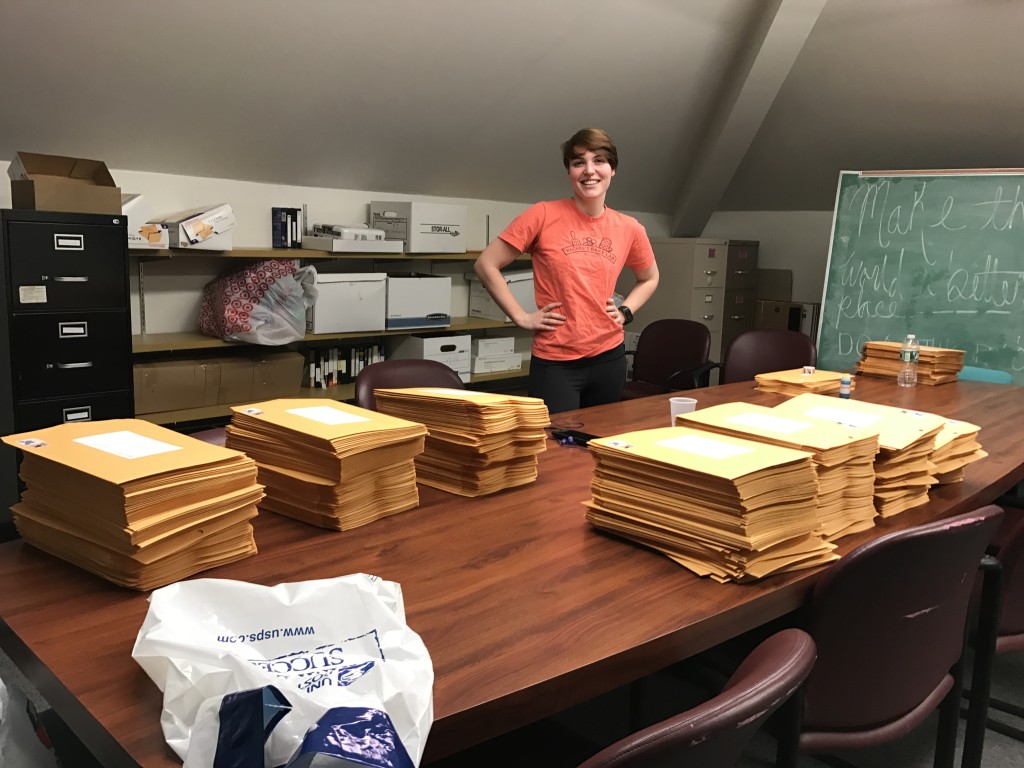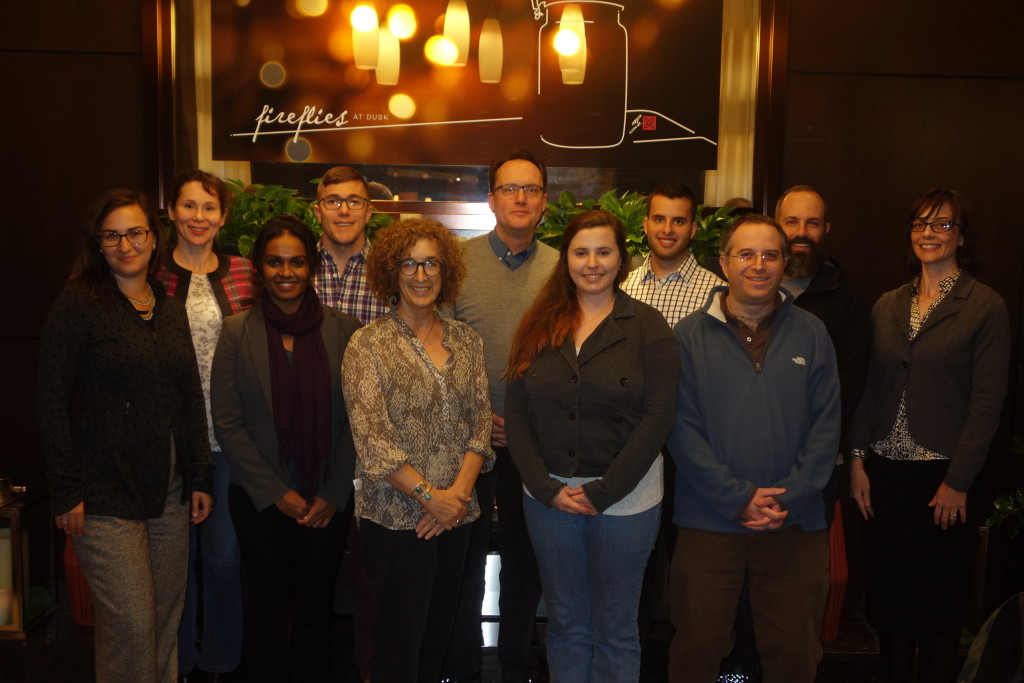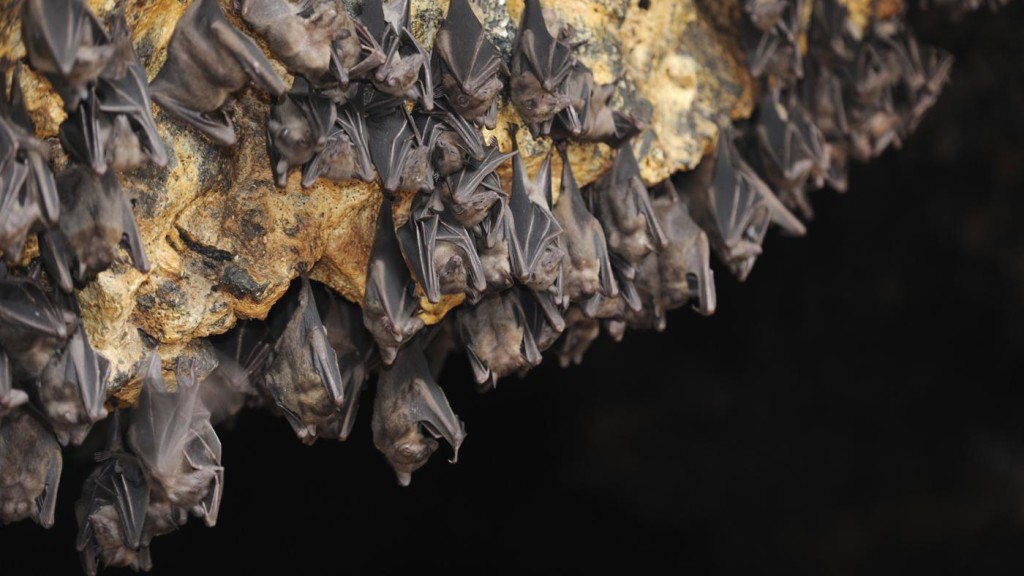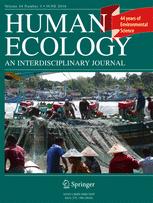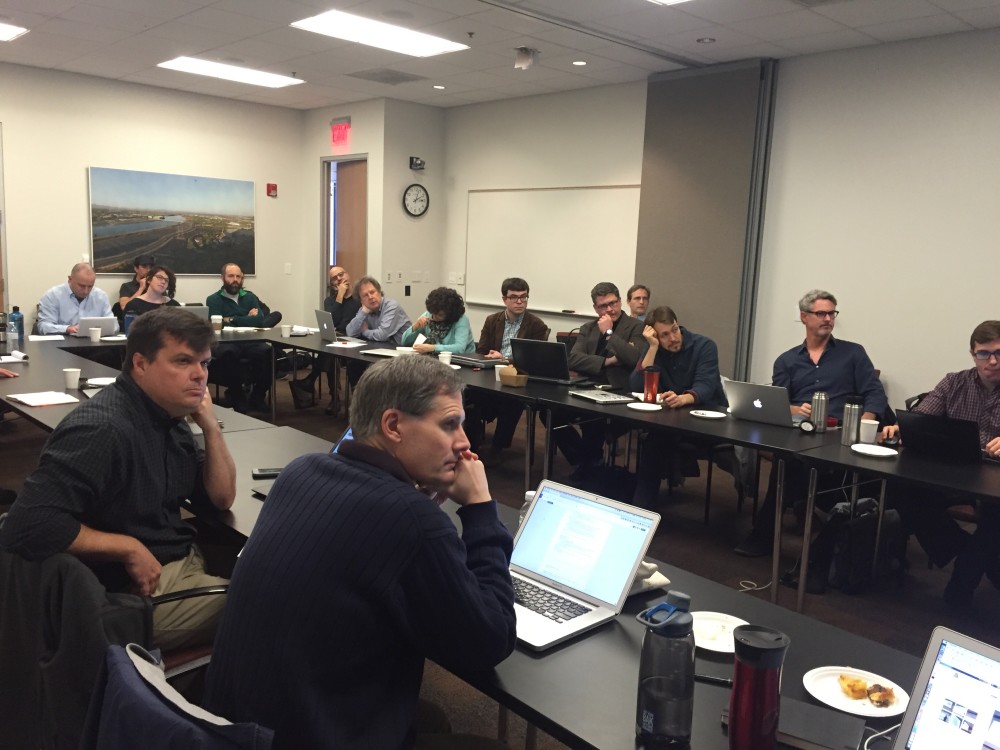Rutgers’ School of Arts and Sciences recently recognized Mongolia field site supervisor Thomas Conte for successfully obtaining funding for his dissertation fieldwork. He obtained his funding from three sources: the National Science Foundation, Fulbright IIE, and the American Center for Mongolian Studies. Tom is currently conducting field-work in Mongolia’s Darhad Depression, where he is looking at risk management, cooperation, and sharing among livestock herders.
News
HGP team members send survey to ranchers in Arizona and New Mexico
HGP team members send survey to ranchers in Arizona and New Mexico
In early February, Rutgers undergraduate research assistant Anna Flaherty worked with Human Generosity Project co-director Lee Cronk to package and ship surveys to more than one thousand ranchers in southeastern Arizona and southwestern New Mexico. The data generated by these surveys will enable the HGP to test hypotheses about when, how, and why ranchers help each other and what, if anything, they expect in return. As a way of thanking the ranchers for their help, the HGP will make a $5 donation to a local chapter of Future Farmer’s of America or 4H for every survey that is returned.
SHARE THIS PAGE:
HGP Featured in Rutgers Newsletter
Human Generosity Project Researchers Interviewed for Access Newsletter
The Human Generosity project was featured in Access, a newsletter published by Rutgers’ School of Arts and Sciences. The article provides an overview of the project’s research goals, which are centered around the question of why people help each other. Project director Lee Cronk, Mongolia field-site supervisor Thomas Conte, and Ik field-site supervisor Cathryn Townsend were all interviewed for the article.
Human Generosity Project Meeting in Minneapolis
Human Generosity Project Members Discuss their Research in Minneapolis, MN
Human Generosity Project researchers met in Minneapolis during the American Anthropological Association conference in November to discuss their findings. The meeting began with a discussion about how the project’s multidisciplinary approach that includes modeling, field work, and laboratory experiments is uniquely suited for investigating resource transfers in humans.
Do Human and Vampire Bat Friendships Share the Same Origin?
Human Generosity Project Members Interviewed about Their Research for an Article Published by Sapiens
September 1, 2016
Human Generosity Project co-director Lee Cronk and Human Generosity Project member Dennis Sonkoi were interviewed by online publisher Sapiens for an article about friendship. Cronk and Sonkoi described their research with the Maasai people, a pastoral ethnic group in Kenya. They emphasized how a casual friendship can bloom into a special type of friendship known among the Maasai as osotua, which means umbilical cord. Osotua friends go beyond casual friendship by serving as each other’s safety nets against adversity. Cronk adds that developing an emotional bond may have been an efficient evolutionary adaptation that allowed for close friends, such as osotua, to rely on each other in times of need.
New Article Published in Human Ecology
Cooperation in an Uncertain World: For the Maasai of East Africa, Need-Based Transfers Outperform Account-Keeping in Volatile Environments
July 23, 2016
When the going gets tough, should you be stingy or nice? An article written by a team of Human Generosity Project researchers has been published in the journal Human Ecology investigates this very question by modeling volatile ecological conditions and testing the best resource sharing strategies. The researchers used agent-based models to compare strict account keeping to a generous giving rule based on the need of the recipient (called ‘need-based transfers’) under volatile conditions.
Athena Aktipis interviewed about the sharing economy
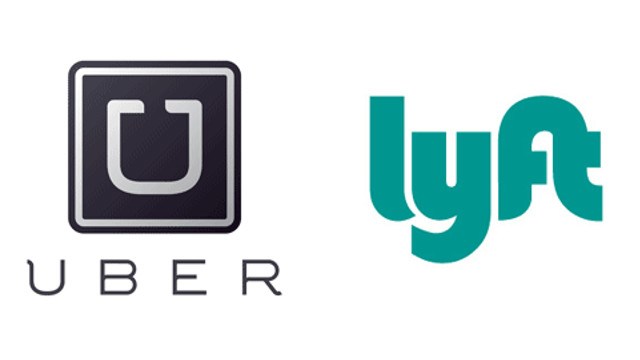
What do services like Uber and Lyft have to do with need-based transfers? Human Generosity Project co-director Athena Aktipis was interviewed by The Daily Dot about the sharing economy and how it interacts with people’s cognitive mechanisms. “I think it taps into our desire to help others who are in need and to be helped when we are in need,” Aktipis said. Click here to read the whole story.
Tom Conte’s successful quest for dissertation research funding
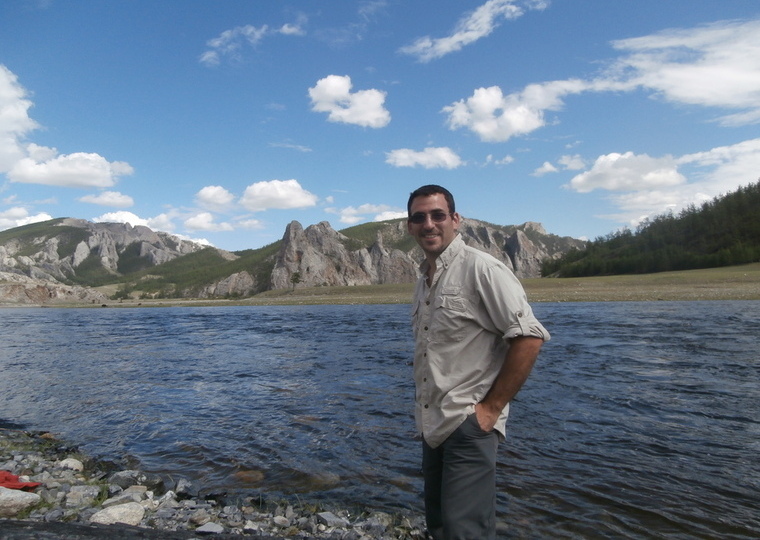 Mongolia field site supervisor Thomas Conte has successfully obtained funding for his dissertation fieldwork from three sources: the National Science Foundation, Fulbright IIE, and the American Center for Mongolian Studies. Tom will be leaving this summer for long term fieldwork in Mongolia’s Darhad Depression, where he will be looking at risk management, cooperation, and sharing among livestock herders.
Mongolia field site supervisor Thomas Conte has successfully obtained funding for his dissertation fieldwork from three sources: the National Science Foundation, Fulbright IIE, and the American Center for Mongolian Studies. Tom will be leaving this summer for long term fieldwork in Mongolia’s Darhad Depression, where he will be looking at risk management, cooperation, and sharing among livestock herders.
Padmini Iyer’s successful dissertation defense
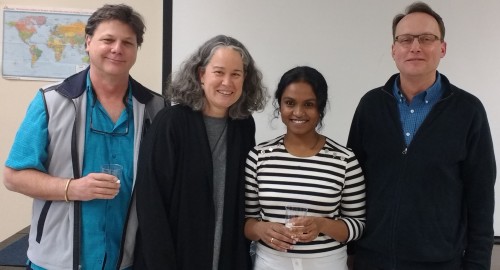 On May 4, 2016, HGP team member and Karamoja field site supervisor Padmini Iyer successfully defended her dissertation, which was titled Risk Management Strategies of Male and Female Pastoralists in Karamoja, Uganda. Serving on her committee were her advisor Lee Cronk, Rutgers anthropologists Dorothy Hodgson and Ryne Palombit, and Michael Bollig from the University of Cologne.
On May 4, 2016, HGP team member and Karamoja field site supervisor Padmini Iyer successfully defended her dissertation, which was titled Risk Management Strategies of Male and Female Pastoralists in Karamoja, Uganda. Serving on her committee were her advisor Lee Cronk, Rutgers anthropologists Dorothy Hodgson and Ryne Palombit, and Michael Bollig from the University of Cologne.
Risk, Disasters and Need-based Transfers Workshop
HGP and DCDC Workshop 2016: Helping and Resilience in the Face of Disaster
The Human Generosity Project
January 15-16, 2016
The Human Generosity Project team partnered with the Decision Center for a Desert City to host a multidisciplinary workshop in Tempe, Arizona. The workshop served as a platform for discussion on the topic of helping behavior and the enhancement of resilience in the face of environmental uncertainty. Psychologists, anthropologists, engineers, mathematicians, and disaster recovery experts all shared their insights and latest findings in an environment of rich dialog stimulated by a great diversity of perspectives and methodologies.

